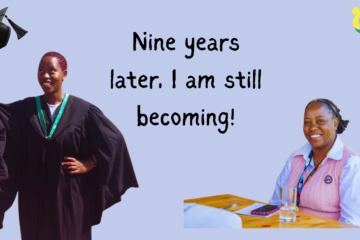When I first acquired my disability, I was completely lost. I had no idea how to navigate life in a wheelchair. No support group, no peer-to-peer training—just me, confused, frightened, and overwhelmed. As I lay in that hospital bed, the reality of my situation began to sink in. There was no guidebook for this new life I was about to embark on—the fear, the uncertainty—it was sometimes unbearable. Looking back now, I realize how much peer-to-peer training could have made a difference.
I imagine the countless spinal cord injury (SCI) survivors who leave the hospital, not only dealing with physical pain but also battling emotional and mental anguish. Most of them, like me, feel completely unprepared for the life ahead.
What is Peer-to-Peer Training?
Peer-to-peer training is a support system where people with lived experiences of spinal cord injury (SCI) guide others who are newly injured. These trainers—people who understand the unique challenges of SCI—offer emotional support, practical advice, and life skills to help survivors regain independence. They teach crucial skills like bowel and bladder management, how to prevent pressure sores, and how to adapt to daily life with a disability. But more than that, they provide hope.
In 2024, spinal cord injuries in Kenya remain a silent struggle. The rate of SCI-related trauma is increasing due to road accidents, falls, and other causes. Unfortunately, many of those leaving the hospital are like I was—scared out of their minds, unsure of how to adapt to their new reality. Now imagine this: what if every hospital had a peer-to-peer training group?
What if every SCI survivor had someone who had been in their shoes guiding them through the process? I think about how differently things could have been for me. How many people could avoid bedsores, not because they’re being negligent, but simply because they don’t know how to manage their bowel movements or how to adjust in bed to avoid pressure sores?
The Struggles SCI Survivors Face After Leaving the Hospital
The journey for SCI survivors doesn’t end when they leave the hospital. For many, it’s just the beginning of a long and painful chapter. The majority of survivors in Kenya leave medical facilities with no real understanding of how to live with their injuries.
The fear and struggles of a newly injured SCI survivor are very real. Imagine being told you’ll never walk again, and then left to figure it out alone. The initial days and weeks are filled with uncertainty: How will I go to the bathroom? Will I ever have a family? Can I work again? How will people see me now? Peer-to-peer training helps answer these questions in a way that doctors and therapists often cannot. It brings an element of shared experience, something that can’t be replicated through clinical care alone.
Why Peer-to-Peer Training Matters

Catherine doing a Peer-to-peer training session in India.
Peer-to-peer training is more than just practical advice—it’s about emotional support, building confidence, and providing hope. It’s someone telling you, “I’ve been there, and I’m living proof that life doesn’t end here.” Yet, in Kenya, this type of support is still in its infancy.
Organizations like Motivation Charitable Trust and APDK (Association for the Physically Disabled of Kenya) are pioneering efforts to provide peer-to-peer training, but access is limited, especially in rural areas. There are not enough trainers, and many survivors never receive the help they so desperately need. Without widespread peer-to-peer training, new SCI survivors are left grappling with fears of dependency, loneliness, and isolation.
Studies show that peer-to-peer programs drastically improve the quality of life for SCI survivors, lowering the risk of complications, improving mental health, and providing a sense of belonging. In Kenya, we need to establish more of these programs, especially in rural areas where access to support is even scarcer. With trained peers in every hospital, survivors would have a better chance at a successful recovery, and the road to independence wouldn’t feel so daunting.
My Vision for a Better Kenya
My dream is to create a Kenya where SCI survivors are treated with dignity and have the support, they need from day one. I envision a system where peer-to-peer trainers are available in every hospital, guiding survivors through the most difficult period of their lives. I dream of a world where young SCI survivors can be taken under my wing, nurtured, trained, and motivated until they can stand on their own, even if not physically, but emotionally and mentally.
That’s the vision behind Unbroken Steps. It’s not just a blog or a platform; it’s a movement. A space where SCI survivors can find community, gain strength, and be empowered to live fulfilling lives. Through peer-to-peer training, we can give survivors the tools they need to not only survive but thrive.
To wrap it up: peer-to-peer training
There’s so much more awareness needed around SCI and its management. Proper nutrition, skincare, and physical therapy—all of these are critical aspects of living with SCI. And yet, most people, even survivors, have little knowledge about them. What if there were more trained individuals who could spread this awareness? What if hospitals prioritized educating SCI survivors right from the start, not just through doctors, but by connecting them with people who truly understand their journey?
We need more peer-to-peer training programs in Kenya. We need them in hospitals, in communities, and especially in rural areas where access to SCI care is even more limited. Life with SCI can be daunting, but it doesn’t have to be. With the right support, survivors can live full, rich, and independent lives. Peer-to-peer training is one of the most impactful ways to make that a reality. It’s time we start investing in it.



4 Comments
Business Listing · May 30, 2025 at 10:07 am
This blog is not just about the content, but also the community it fosters I’ve connected with so many like-minded individuals here
Electrical Wholesaler · June 2, 2025 at 10:15 pm
Keep up the amazing work!
Shuttle Services · October 7, 2025 at 10:48 pm
You have a way of explaining complex topics in a straightforward and easy to understand manner Your posts are always a pleasure to read
When Wheels Fly: My First Taste of Wheelchair Basketball Magic - Unbroken Steps · August 11, 2025 at 1:18 pm
[…] I watched and listened, I kept thinking about newly injured wheelchair users — how powerful it would be for them to see this. To witness the possibility, the joy, the pride. […]